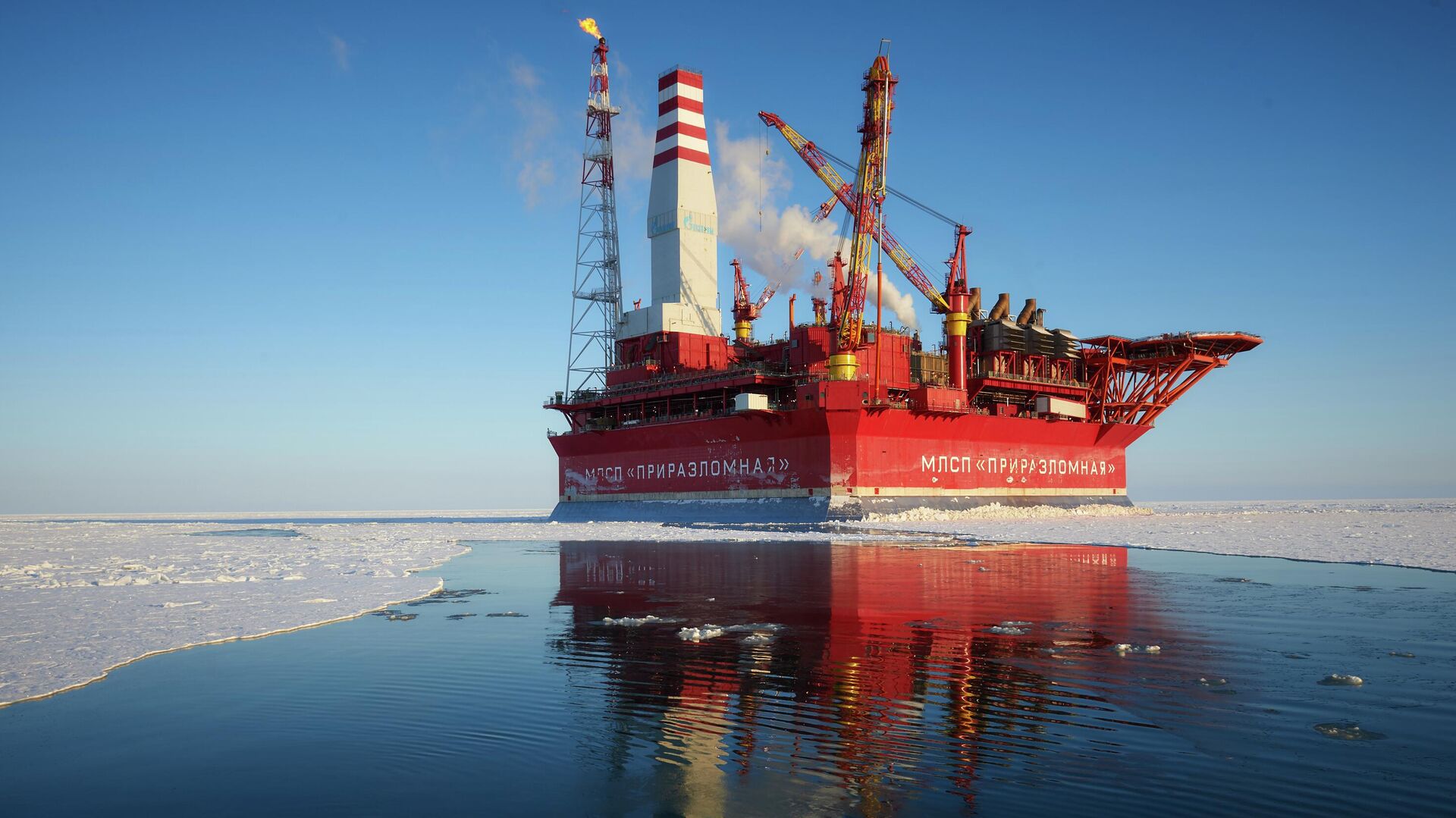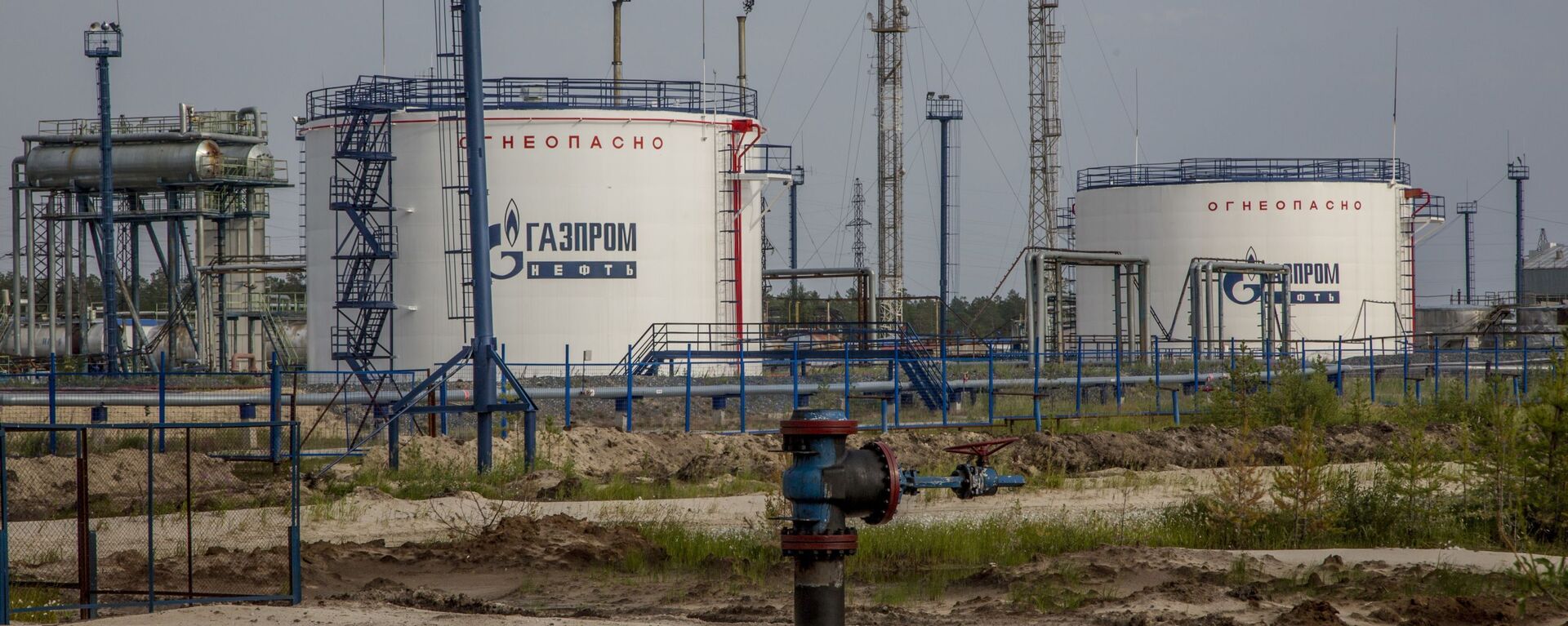https://sputnikglobe.com/20220902/imposing-price-cap-on-russian-oil-threatens-to-further-collapse-energy-market-embassy-warns-1100296141.html
Imposing Price Cap on Russian Oil ‘Threatens to Further Collapse’ Energy Market, Embassy Warns
Imposing Price Cap on Russian Oil ‘Threatens to Further Collapse’ Energy Market, Embassy Warns
Sputnik International
On Thursday, Russia’s Deputy Prime Minister Alexander Novak lashed out at the G7 over its plans to place a price cap on Russian oil, warning that Moscow would... 02.09.2022, Sputnik International
2022-09-02T07:23+0000
2022-09-02T07:23+0000
2023-04-12T17:15+0000
russia
us
g7
revenue
special operation
world
oil
prices
european union (eu)
https://cdn1.img.sputnikglobe.com/img/07e6/06/02/1095943965_93:0:3049:1662_1920x0_80_0_0_f452e7bb9b8b39670f594d7108567f5b.jpg
The Russian Embassy in the US has warned of far-reaching consequences from “manifestly harmful ideas of introducing a ‘price cap’ on Russian oil which are actively promoted” by Washington.This, the embassy goes on, “destabilizes the world energy markets," with consumers “reaping the ‘rewards’ in the form of price hikes of gasoline, electricity and other necessities for a normal life.”According to the embassy, “instead of the desired ‘destruction’” of Russia’s energy sector, “even ill-wishers admit the confident dynamics of its development.”The Russian diplomats pointed out that after the Biden administration “consolidated the voluntaristic ‘innovation’ in the obedient ranks of the G7,” Washington is seeking “by tricks, and sometimes by blackmail” to “impose the idea of a ‘price cap’ mechanism on the 'third' countries.”According to the Russian diplomats, Moscow “will not sell oil at a loss” and it is “not going to work on non-market conditions.” The embassy stressed that Russia is “deservedly enjoying the reputation of a reliable exporter of high-quality energy sources" and "is always open to cooperation, but only on a mutually beneficial basis.” The Russian embassy staff urged Washington “to change its mind and refrain from imposing downright counterproductive initiatives.”The statement comes after White House spokesperson Karine Jean-Pierre told reporters on Thursday that G7 finance ministers will discuss the Biden administration's proposed price cap on Russian oil during their meeting on Friday.In July, the International Energy Agency said in July that Russia’s export revenue in June increased by $700 million month on month due to higher prices, 40% above last year's average.Also on Thursday, Russian Deputy Prime Minister Alexander Novak warned that the idea of putting a limit on the price of Russian oil is “completely absurd” and that if such a decision is made, Russia "will not supply oil and oil products" to those countries that will impose price caps “as we will not work on non-market conditions.”Over the past several months, the sanctions imposed by the West on Russia in retaliation for Moscow’s ongoing special military operation in Ukraine have sent food and energy prices soaring, triggering record-high inflation in some countries, including the US and the UK.
https://sputnikglobe.com/20220712/russian-oil-price-cap-fraught-with-technical--diplomatic-challenges-us-treasury-concedes-1097213356.html
https://sputnikglobe.com/20220719/yellen-urges-seoul-to-support-us-push-for-russian-oil-price-cap-1097584959.html
russia
Sputnik International
feedback@sputniknews.com
+74956456601
MIA „Rossiya Segodnya“
2022
Oleg Burunov
https://cdn1.img.sputnikglobe.com/img/07e4/09/0b/1080424846_0:0:2048:2048_100x100_80_0_0_3d7b461f8a98586fa3fe739930816aea.jpg
Oleg Burunov
https://cdn1.img.sputnikglobe.com/img/07e4/09/0b/1080424846_0:0:2048:2048_100x100_80_0_0_3d7b461f8a98586fa3fe739930816aea.jpg
News
en_EN
Sputnik International
feedback@sputniknews.com
+74956456601
MIA „Rossiya Segodnya“
Sputnik International
feedback@sputniknews.com
+74956456601
MIA „Rossiya Segodnya“
Oleg Burunov
https://cdn1.img.sputnikglobe.com/img/07e4/09/0b/1080424846_0:0:2048:2048_100x100_80_0_0_3d7b461f8a98586fa3fe739930816aea.jpg
russia, us, g7, revenue, special operation, oil, prices, european union (eu)
russia, us, g7, revenue, special operation, oil, prices, european union (eu)
Imposing Price Cap on Russian Oil ‘Threatens to Further Collapse’ Energy Market, Embassy Warns
07:23 GMT 02.09.2022 (Updated: 17:15 GMT 12.04.2023) On Thursday, Russia’s Deputy Prime Minister Alexander Novak lashed out at the G7 over its plans to place a price cap on Russian oil, warning that Moscow would not deliver oil and oil products to countries that support the decision.
The Russian Embassy in the US has warned of far-reaching consequences from “manifestly harmful ideas of introducing
a ‘price cap’ on Russian oil which are actively promoted” by Washington.
In a statement on Friday, the embassy referred to “a painfully familiar situation,” which is being created when “the collective West, obsessed with the goal of ‘suffocating’ the Russian economy, introduces” restrictive measures against “trade of cheap and at the same time high-quality sources of energy.”
This, the embassy goes on, “destabilizes the world energy markets," with consumers “reaping the ‘rewards’ in the form of price hikes of gasoline, electricity and other necessities for a normal life.”
According to the embassy, “instead of the desired ‘destruction’” of Russia’s energy sector, “even ill-wishers admit the confident dynamics of its development.”
“Such a situation is forcing Washington to declare with straight face new goals. Which are the following: to prevent a shortage of Russian oil on international markets, while minimizing the revenues of the Russian budget. To implement them, an anti-market concept for introducing a "price ceiling" for the energy carrier is invented,” the statement underlines.
The Russian diplomats pointed out that after the Biden administration “consolidated the voluntaristic ‘innovation’ in the obedient ranks of the G7,” Washington is seeking “by tricks, and sometimes by blackmail” to “impose the idea of a ‘price cap’ mechanism on the 'third' countries.”
“However, instead of illusory cheap resources, the use of such an instrument only threatens to further collapse the oil market, which is already struggling to recover after the COVID-19 pandemic. Moreover, it is under relentless pressure from lobbyists promoting a turbocharged ‘green’ transition,” the embassy stated.
According to the Russian diplomats, Moscow “will not sell oil at a loss” and it is “not going to work on non-market conditions.” The embassy stressed that Russia is “deservedly enjoying the reputation of a reliable exporter of high-quality energy sources" and "is always open to cooperation, but only on a mutually beneficial basis.” The Russian embassy staff urged Washington “to change its mind and refrain from imposing downright counterproductive initiatives.”
The statement comes after White House spokesperson Karine Jean-Pierre told reporters on Thursday that G7 finance ministers will discuss the Biden administration's proposed price cap on Russian oil during their meeting on Friday.
She argued that introducing the price cap is “the most effective way […] to hit hard at [Russian President Vladimir] Putin's revenue and doing so will result in not only a drop in Putin's oil revenue, but also global energy prices as well.”
In July, the International Energy Agency said in July that Russia’s export revenue in June increased by $700 million month on month due to higher prices, 40% above last year's average.
Also on Thursday, Russian Deputy Prime Minister Alexander Novak warned that the idea of putting a limit on the price of Russian oil is “completely absurd” and that if such a decision is made, Russia "will not supply oil and oil products" to those countries that will impose price caps “as we will not work on non-market conditions.”
Over the past several months, the sanctions imposed by the West on Russia in retaliation for Moscow’s ongoing
special military operation in Ukraine have sent food and energy prices soaring, triggering record-high inflation in some countries, including the US and the UK.





